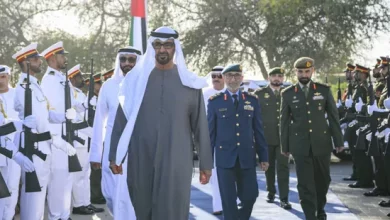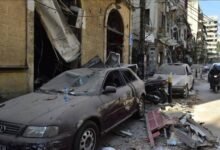middle east
Iraqi protesters storm local government building amid anger over graft
[su_label type=”info”]SMA News – Agencies [/su_label][su_spacer size=”10″] Protesters stormed the provincial government building in the Iraqi city of Kerbala on Saturday as protests over poor public services and corruption across southern Iraq entered their sixth day.
Demonstrations also took place in the cities of Najaf and Basra, where security forces announced city-wide curfews amid reports of skirmishes between protesters and local militia groups.
In Basra, seven protesters were injured after clashing with guards belonging to a local militia group, security forces said.
Oil exports from Basra account for more than 95 percent of OPEC producer Iraq’s state revenues. Any potential disruptions could severely impact Iraq’s limping economy, though officials said the protests had not so far impacted crude production.
Prime Minister Haider al-Abadi announced that his government would release funds to Basra for water, electricity and health services, state television said.
Earlier, Abadi, who also serves as commander-in-chief of Iraq’s armed forces, had issued a nationwide order placing security forces on high alert in the southern provinces in response to the protests.
Reinforcement troops from both the Counter-Terrorism Service and the Army’s Ninth Division have already been dispatched to Basra to help protect the province’s oil fields, security sources said.
Abadi’s directive aims to stem the burgeoning protests, which on Friday spread from Basra – where residents had blocked access to the nearby commodities port of Umm Qasr – to the cities of Amara, Nasiriya and the Shi’ite holy city of Najaf.
Hundreds of Iraqis stormed the airport and halted air traffic in Najaf on Friday.
Demonstrations also took place in the cities of Najaf and Basra, where security forces announced city-wide curfews amid reports of skirmishes between protesters and local militia groups.
In Basra, seven protesters were injured after clashing with guards belonging to a local militia group, security forces said.
Oil exports from Basra account for more than 95 percent of OPEC producer Iraq’s state revenues. Any potential disruptions could severely impact Iraq’s limping economy, though officials said the protests had not so far impacted crude production.
Prime Minister Haider al-Abadi announced that his government would release funds to Basra for water, electricity and health services, state television said.
Earlier, Abadi, who also serves as commander-in-chief of Iraq’s armed forces, had issued a nationwide order placing security forces on high alert in the southern provinces in response to the protests.
Reinforcement troops from both the Counter-Terrorism Service and the Army’s Ninth Division have already been dispatched to Basra to help protect the province’s oil fields, security sources said.
Abadi’s directive aims to stem the burgeoning protests, which on Friday spread from Basra – where residents had blocked access to the nearby commodities port of Umm Qasr – to the cities of Amara, Nasiriya and the Shi’ite holy city of Najaf.
Hundreds of Iraqis stormed the airport and halted air traffic in Najaf on Friday.








